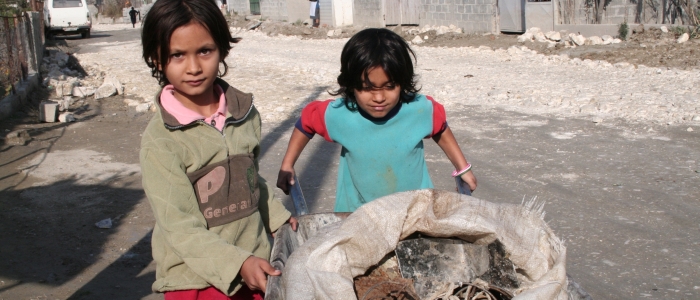Despite having ratified all eight core ILO labour Conventions, there are limitations on the rights to strike for civil servants in Albania, and members of the military and senior government officials are prohibited from joining unions. The report finds that anti-union discrimination is a problem, and as a response to a recent law on the expropriation of trade unions’ properties, the two ITUC affiliated organisations (KSSH and BSPSH) have sent a formal letter of complaint to the ILO Committee on Freedom Association stating that the government’s plans to nationalise trade union headquarters are contrary to Conventions 87 and 98.
With regard to discrimination in employment, the report highlights that the principle of equal pay for work of equal value is not applied in practice and that well-educated women are often discriminated against and have to work outside their field of training.
Albania is among the countries in Central and Eastern Europe most seriously affected by exploitation of children, both through trafficking and domestically. According to the report, the Labour Code allows children between 14 and 16 years to engage in so-called "easy jobs" while children from 16 years of age may be employed in difficult or hazardous work in agriculture, construction and factories. Part of the problem is also the low school attendance rates and high drop-out rates for poor children, many from Roma communities. It is estimated that 50,000 children work part-time or full-time; the report recommends that the government provide an effective child protection safety net, and take the necessary measures to enable children currently at work to re-enter the school system.
Finally, on the respect of ILO standards on forced labour, the report expresses concern that trafficking for the purpose of forced labour still takes place and that women and girls are trafficked for commercial sexual exploitation.
The ITUC represents 176 million workers in 155 countries and territories and has 312 national affiliates. http://www.youtube.com/ITUCCSI
For more information, please contact the ITUC Press Department on: +32 2 224 0204 or +32 476 621 018.
Photo: Ali Begeja


